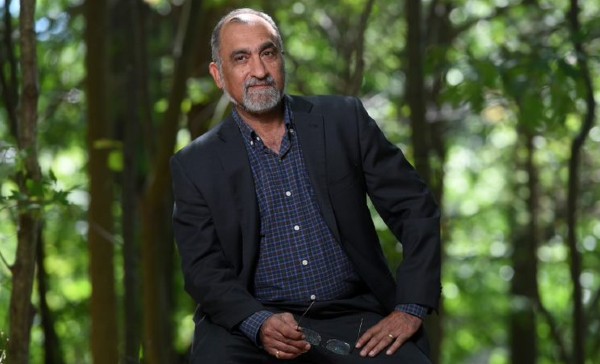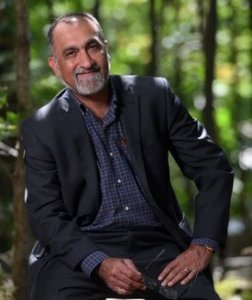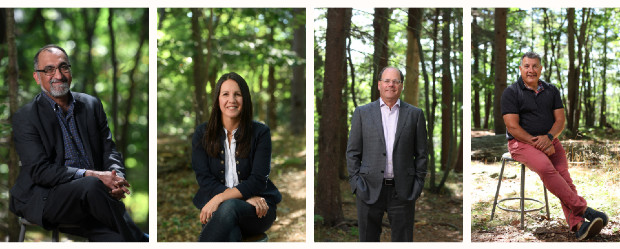
Probing Alzheimer’s Mysteries
Aurum Awards 2020: Dr. Sultan Darvesh (MD’88)
By Mark Campbell | Photo credit: Danny Abriel
When Sultan Darvesh (MD’88) was a child in Tanzania, he spent a lot of time in hospital due to migraines. The pain was so intense that he made a promise to himself: if his doctors could cure him, he would go into medicine to make a difference for others.
Today, Dr. Darvesh is making significant progress on that promise. As the Dalhousie Medical Research Foundation’s Irene MacDonald Sobey Chair in Curative Approaches to Alzheimer’s Disease, he is leading a team of researchers at the university in groundbreaking work that could be a gamechanger for millions of people living with the disease. He has developed a radioactive molecule that enables PET and SPECT scanning of butyrylcholinesterase, an enzyme that plays a key role in the progression of the disease. This molecule could enable diagnosis in living patients—something previously impossible—and potentially result in new research and therapeutic approaches to reverse or make the disease more manageable.
 “It is hard to predict that we can achieve those diagnostic and therapeutic goals, but I would not be doing this if I were not optimistic,” says Dr. Darvesh, who is a Professor within Dalhousie University’s Departments of Medicine (Neurology) and Medical Neuroscience. “When you see the devastation caused by Alzheimer’s disease, you realize failure is not an option. We are continuing to refine the molecules we developed so they give us better images of the enzyme and a better understanding of the disease itself.”
“It is hard to predict that we can achieve those diagnostic and therapeutic goals, but I would not be doing this if I were not optimistic,” says Dr. Darvesh, who is a Professor within Dalhousie University’s Departments of Medicine (Neurology) and Medical Neuroscience. “When you see the devastation caused by Alzheimer’s disease, you realize failure is not an option. We are continuing to refine the molecules we developed so they give us better images of the enzyme and a better understanding of the disease itself.”
Dr. Darvesh has received considerable recognition for his research but being presented with an Aurum Award has particular resonance. “This is my alma mater, so it means a lot to me. From my undergraduate studies in the Faculty of Medicine to the support of my department, Dalhousie has played a major role in making my work possible.”
Believing more breakthroughs are within reach, Dr. Darvesh is looking to identify more targets for the diagnosis and treatment of dementia. His lab is conducting research on Lewy body dementia and frontal temporal dementia. And he is also interested in exploring why dementia is more prevalent among women than men.
The prospect of a breakthrough excites him, but so does the opportunity to train a new generation of researchers who can build on his work. “If I can get them trained but also inspire the same fire in their belly that drives me, then that is the most important thing,” he says.
